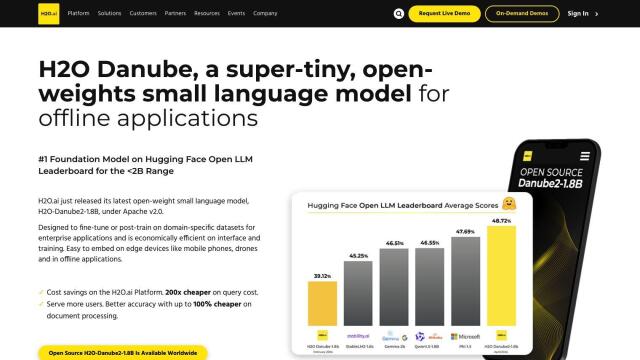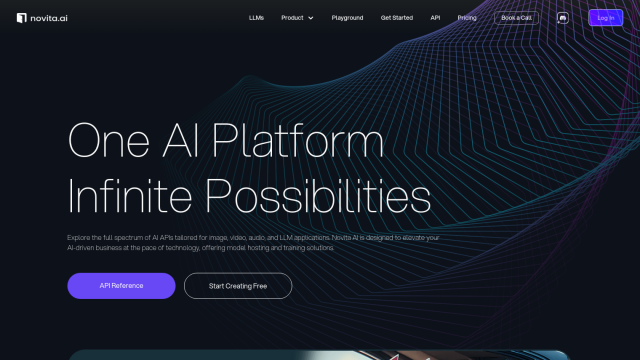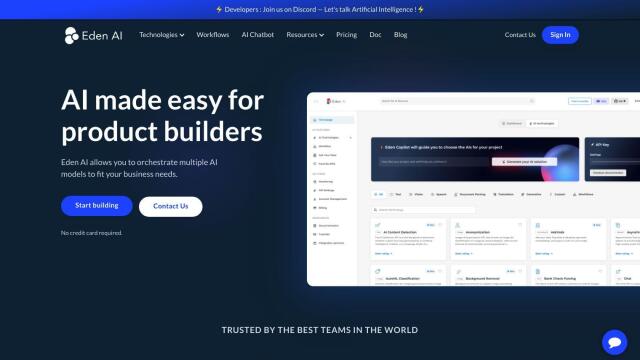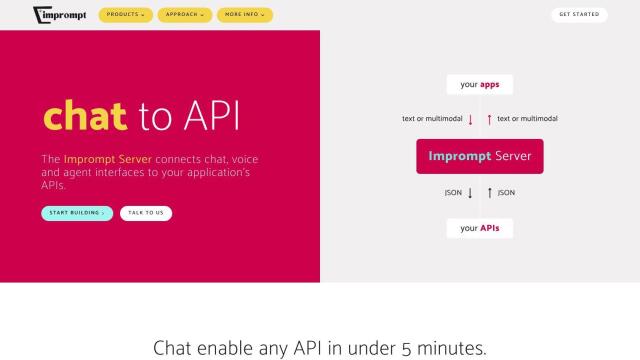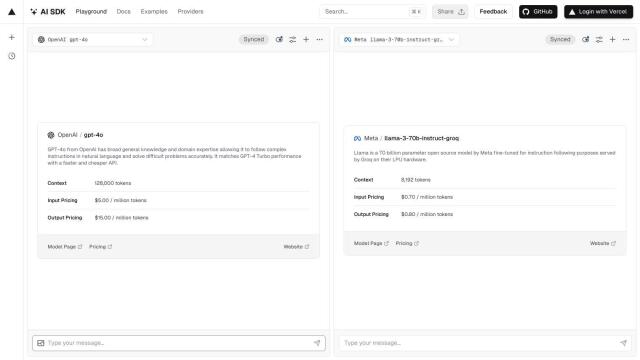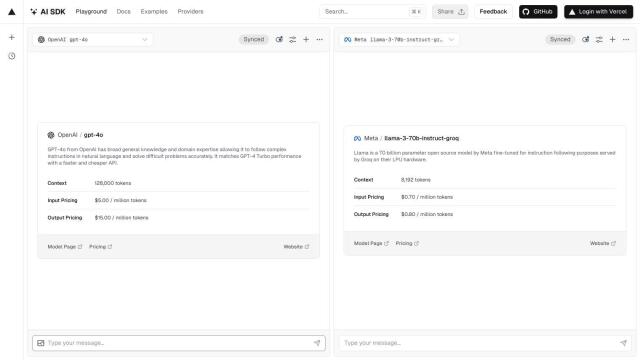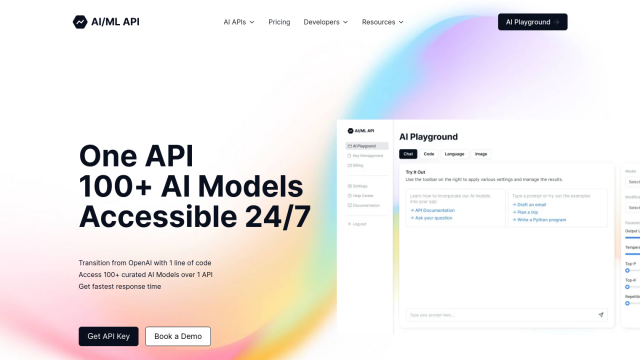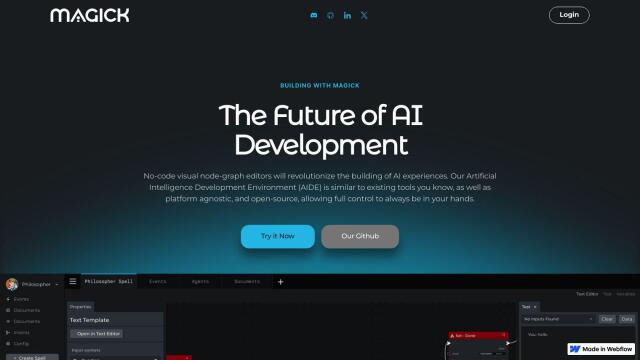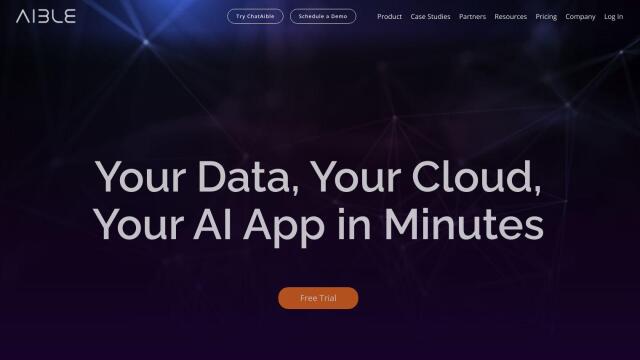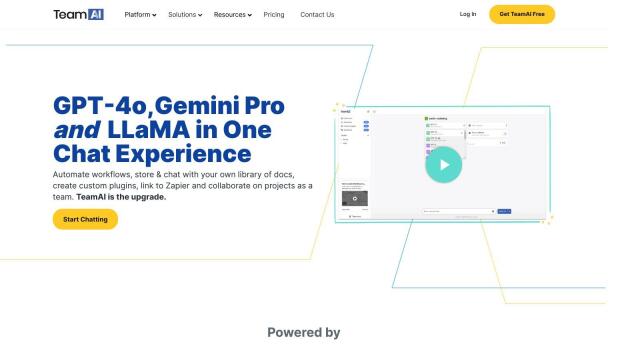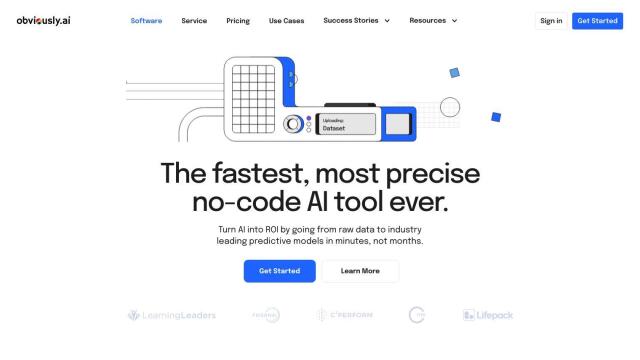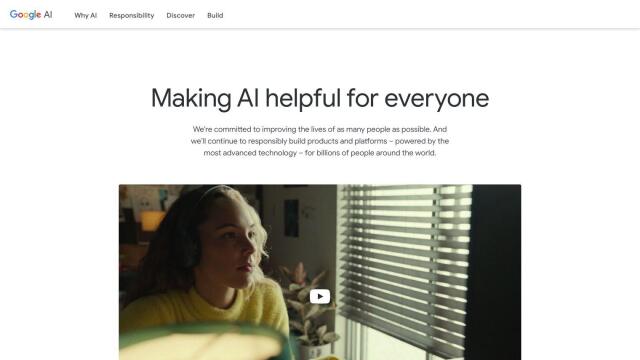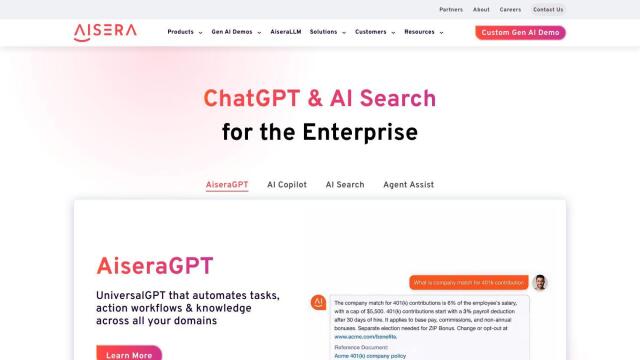Question: I need a comprehensive software development kit (SDK) that supports on-device AI IP for a range of applications, can you suggest one?


Clarifai
If you're looking for a full software development kit (SDK) that supports on-device AI IP for a variety of use cases, Clarifai is a good option. The AI workflow orchestration platform lets companies design, run and operate AI projects at scale, in the data center, air-gapped or in the cloud. It includes automated data labeling, predictive maintenance, content moderation and visual inspection, and comes with a wealth of resources like documentation, APIs and SDKs that's useful for no-code and low-code users.


Abacus.AI
Another powerful option is Abacus.AI, which lets developers build and run applied AI agents and systems at large scale. It offers a range of products, including ChatLLM for building end-to-end RAG systems and AI Agents for automating more complex workflows. The platform supports high availability, governance, compliance, and features like real-time forecasting and anomaly detection, making it a good choice for improving customer service and optimizing business operations.

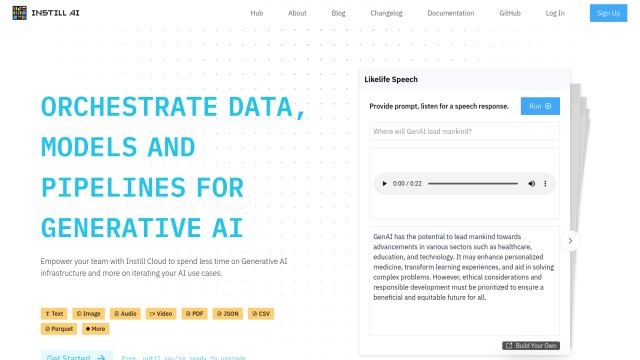
Instill
If you prefer a no-code/low-code approach, Instill is a good option. It's designed to simplify data, models and pipelines for generative AI, letting teams focus on iterating AI use cases instead of infrastructure. Instill offers SDKs for Python and TypeScript, and features like speech responses, webpage summarization and visual assistance. Its drag-and-drop interface and tiered pricing options mean it's easy to add AI abilities to a variety of apps.


LastMile AI
Last, LastMile AI offers a full-stack developer platform for productionizing generative AI applications. It includes tools for debugging and evaluating RAG pipelines, optimizing prompts and managing models. With features like Auto-Eval, RAG Debugger and Service Mesh, LastMile AI supports a range of AI models and includes a notebook-inspired environment for prototyping and app development, making it easier to deploy production-ready AI applications.



